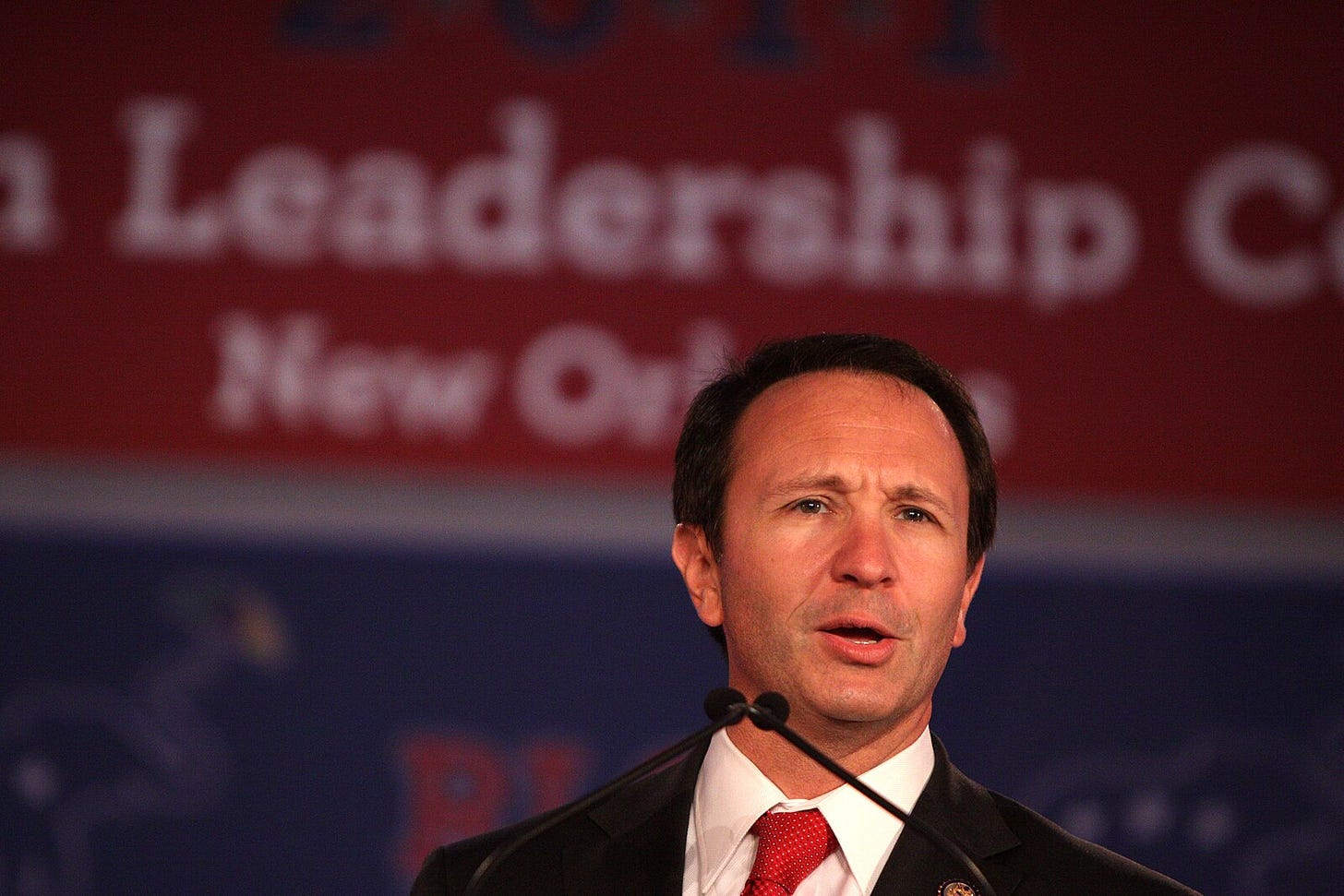Church and State School
Politicians in Oklahoma and Louisiana are courting lawsuits with new policies that require Christianity in schools. A conservative Supreme Court might work in their favor.
When Oklahoma’s public school students return to class in fall, their teachers will be required to teach the Bible, or risk losing their teaching licenses. Beginning in January, every classroom in Louisiana’s public schools must display a large poster of the Ten Commandments.
These new educational edicts, handed down last month, are at the fore of Christian nationalist campaigns to institutionalize religion in public life. The policies are all but guaranteed to face legal challenges on the grounds that they violate students’ religious liberties by breaching the divide between church and state. But the rules’ backers are spoiling for a fight in a courts system that has signaled increasing sympathy for the religious right.
“I’m going home to sign a bill that places the Ten Commandments in public classrooms,” Louisiana Gov. Jeff Landry said at a fundraiser days before approving the bill. “And I can’t wait to be sued.”
The religious right has long eyed public education as a system to be seized. In 1978, Kentucky passed a law requiring schools to post the Ten Commandments in every classroom, but was overruled two years later when the Supreme Court declared the law unconstitutional. That ruling, 1980’s Stone v. Graham, has prevented other states from rolling out similar laws for more than 40 years.
Introducing a law that flies in the face of that long-established ruling is, in effect, shit-stirring. Unfortunately for U.S. schools, we live in a favorable moment for Republican shit-stirrers.
Earlier today, the Supreme Court handed down rulings immunizing presidents for in-office crimes, and gutting agencies’ ability to pass regulations. Those decisions, along with a similar decree last week that stands to massively hamper environmental and safety measures, represent a massive gift to the right, from the same Supreme Court’s conservative supermajority that overturned Roe v. Wade.
Parents and civil liberties watchdogs have already filed suit against the Louisiana law, with similar lawsuits likely in the works for Oklahoma’s new Bible mandate. Those plaintiffs are right to sue—but conservative politicians are probably right to assume the current Supreme Court represents the best chance in years to overturn rulings like Stone v. Graham. In 2022, that same court ruled in favor of a public high school football coach who led students in prayers on the field, arguing that students’ religious liberties were not at risk because they were not required to participate.
The ruling, which softened past decisions on prayer in schools, inspired a wave of state-level legislation, including Ten Commandment bills in Texas, Utah, and South Carolina (none of which have become law).
When pursuing a constitutionally dubious policy, the right often proposes laws in bulk, using model legislation to introduce similar bills in different states with little regard for whether a specific bill will hold up in court. Some of those bills are specifically written to invite legal challenges. The Mississippi anti-abortion law that led to the 2022 overturn of Roe v. Wade, for instance, was based on model legislation by the right-wing legal group the Alliance Defending Freedom.
“We’re kind of basically baiting them; come on, fight us on turf that we have already set up and established,” an ADF senior counsel said of the model legislation when Mississippi adopted it in 2018. “Once we get these first-trimester limitations in place, we’re going to go for a complete ban on abortion, except to save the life of the mother.”
Anti-choice activists weren’t always counting on the overturn of Roe. They also advanced a number of less-ambitious bills that nonetheless made it harder to obtain reproductive health services in many states. The religious right is also pursuing alternate paths toward the full capture of secular education. Conservative lawmakers and megadonors across the country have fought hard for voucher programs that would redirect public school funding to private, religious, and charter schools.
Here, too, the current Supreme Court has ruled favorably toward religious education. In 2022, the court ruled that Maine could not exclude religious schools from a state tuition program.
That same court is likely to hear more cases along similar lines. Days before Oklahoma issued its new rule on biblical education, the state’s supreme court ruled that Oklahoma could not create a religious charter school. The school, which would have been the first of its kind in the country, would have used public education funds to provide Catholic schooling online.
The school is seeking to appeal its case with the Supreme Court.


